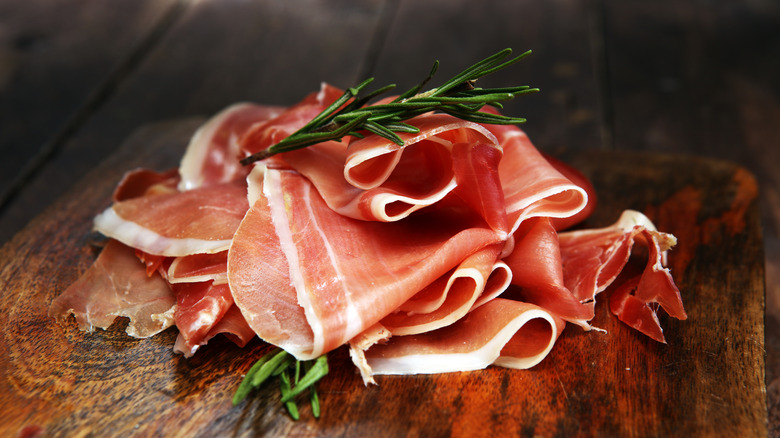Why Animal Welfare Activists Are Calling Out Bayonne And Parma Ham
The supermarket meat aisle sanitizes the reality of animal farming. We all would like to assume that a packet of country ham was sourced from a pig who had a happy and fulfilling life. However, as recent footage shows, this really isn't the case. Yesterday, the animal welfare organization Compassion in World Farming released footage of caged pigs on YouTube. Throughout the video, sows are shown kept in gestation cages barely bigger than themselves after being artificially inseminated. Once the piglets are born, the mother is kept in the cage and is unable to properly nurture them. The space has a distinct smell of ammonia since the pigs have to live in their own excrement.
In an announcement on its website, Compassion in World Farming explained that these were in the conditions in which pigs were living at Parma and Bayonne hams. The video covered sixteen farms across Spain, Italy, France, and Poland. "Americans who pay a premium for Parma and Bayonne hams are likely to be shocked to discover that these 'high-end' products are from systems that keep animals in such cruel cage conditions that have been banned in some U.S. states," Ben Williamson, the U.S. Executive Director for Compassion in World Farming, told National Hog Farmer. He called on the European Union (EU) to ban cage farming, citing laws in Massachusetts and California as examples of more ethical animal laws.
There's pushback against ethical farming
In August 2021, National Geographic reported California's decision to ban the sale of pork made from pigs that were kept in cages smaller than 24 square feet. This applied to all pork products made in the United States, not just California. The law also included a ban on veal crates and the caging of chickens. The piece noted that while veal and chicken farmers were ready to comply with the new space requirements, only 4% of pork farmers were in the position to do so. The National Pork Producers Council (NPPC) noted on its website that California doesn't have a large pork production sector.
The tension will come to a head later this year when, the NPPC and twenty Republican states bring the case before the Supreme Court, arguing that the law which was passed with over 60% of Californians voting for in favor of it imposes too much on interstate commerce (per Reuters). The publication does note, however, that a suit tried to remove California's ban on foie gras was upheld in 2019 by the 9th U.S. Circuit Court of Appeals, showing that there is precedent for keeping the state's cage ban. We can expect a final ruling in 2023.

